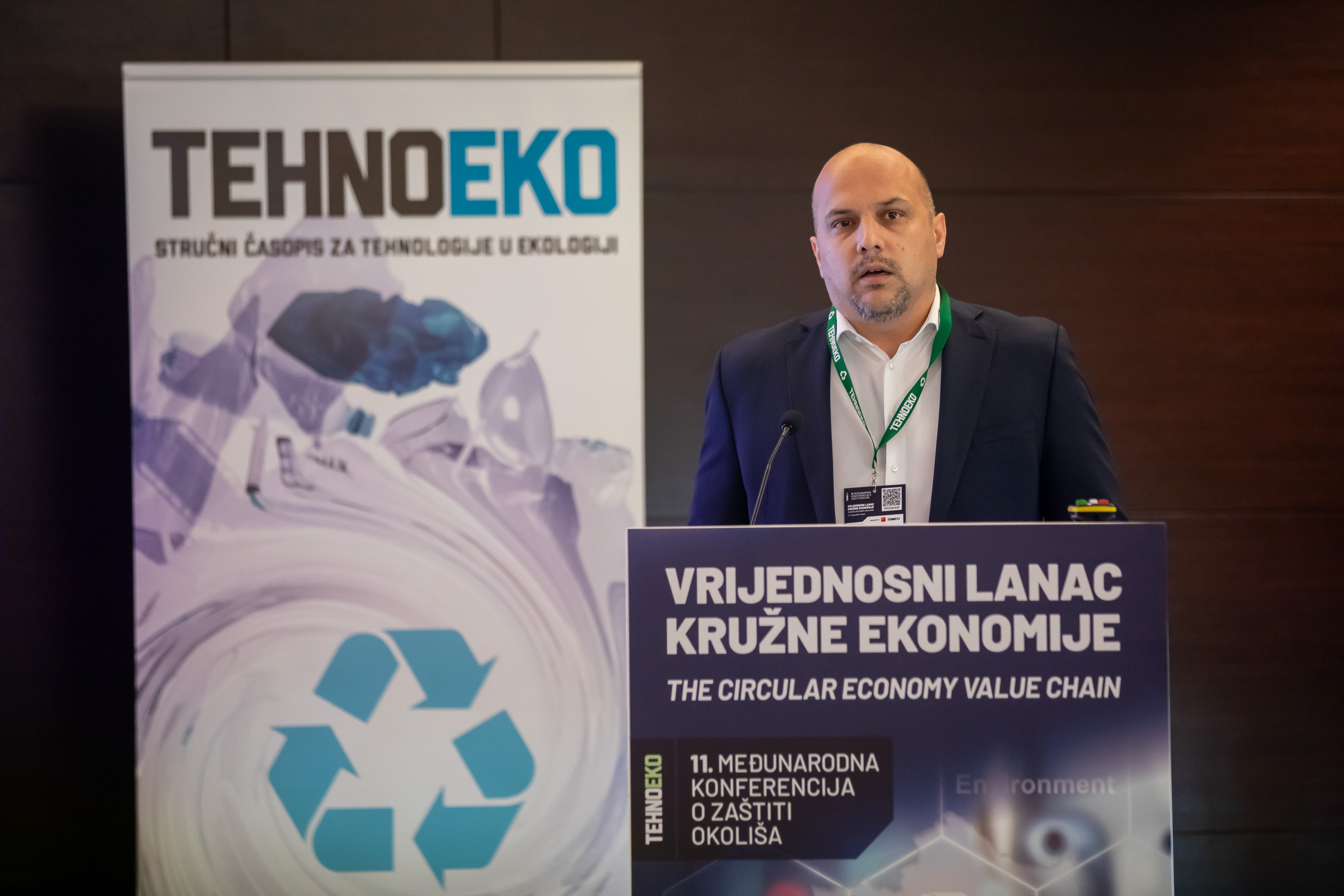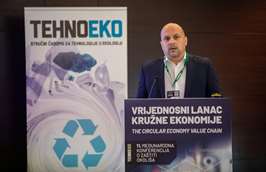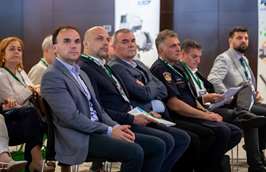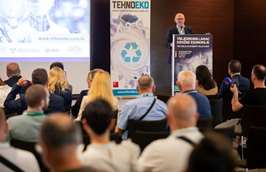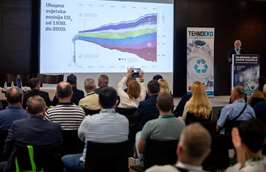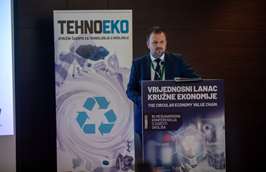05.06.2024.
A three-day 11th International Conference on Waste Management TEHNOEKO 2024 started in Poreč today. It is the largest annual gathering of experts and representatives of utility companies and companies engaged in waste collection and recovery, which was opened by the director of the Environmental Protection and Energy Efficiency Fund, Luka Balen.The conference, which was organised by Business Media Croatia, gathered around 300 participants, where Croatian and international experts discussed about all aspects of the use of waste as a valuable resource and the possibilities of applying good practices to as many local communities as possible.
In his opening speech, Luka Balen, the director of the Fund, pointed out that in the last few years Croatia had made significant progress in waste management. "The rates of separately collected waste are increasing year-on-year. When we analyse the last 5 years, we see this segment has grown by as much as 18 percentage points which, when we talk about the separately collected waste rate, is certainly one of the highest in Europe. According to last year's data, we are currently at 46%, and I expect the result to be even better this year. In addition, it‘s worth noting that 80% of cities have better results in this segment than the year earlier," said Balen, adding that large investments provided by the Fund and various EU programmes contributed to this.
He pointed out that in the last few years, the state had provided more than 500 million euros in grants for the purchase of various municipal equipment, remediation of landfills, the construction of civic amenity sites, composting plants, sorting plants and facilities for recycling construction waste, and waste management centres.
Balen also announced new incentives for towns and municipalities for the purchase of municipal equipment and for the co-financing of educational projects to promote the importance of proper waste management. He emphasised that sustainable waste management was one of the priorities of the Government's environmental policy.
A circular economy focused on recycling and energy recovery is the key measure that offers an opportunity to shape Europe's economy and society by 2050 in a climate-neutral and sustainable way. The lectures and panels during the conference tried to give an answer to how this ambition can be achieved.
"We now have the opportunity to hear about the latest waste treatment technologies, the use of AI, new legal frameworks, successful international and domestic practices, as well as the challenges this sector faces, and about the ways to successfully overcome these challenges from leading experts in waste management," said conference organiser Nenad Žunec, managing director at Business Media Croatia.
One of the speakers at the conference, Renato Šarc, lecturer at the University of Leoben in Austria, said that producer responsibility played a significant role in the transformation from a linear to a circular economy, obliging them to develop sustainable and recyclable products. "Waste management facilities are built with the aim of providing secondary raw materials and energy, while improving the current environmental situation. This transformation requires cooperation of all stakeholders in the value chain, including politics, economy, science, society, and waste generating end consumers, to achieve common goals. We must never forget that harmful emissions, regardless of the place of their origin, don’t know state borders and don’t need passports, and therefore have an impact on our entire planet," Šarc concluded.
